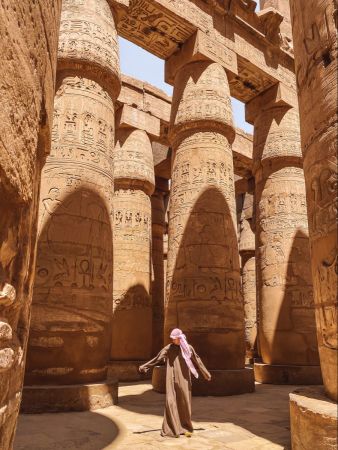Legacy of King Tut
Tutankhamun, the boy king of Egypt's 18th dynasty, who reigned about 1341 1323 BCE, is mostly referred to as King Tut. Although the young king ruled for a short time his fame became even greater when the almost untouched tomb was discovered in the Valley of the Kings. This discovery still captivates history lovers and people visiting Egypt through tours, day trips to Cairo, and cruises on the Nile. To examine the narrative of King Tut is to touch, in a very real sense, the vast splendor and enigma of ancient Egypt and this is the reason why it has become a must-see during the Christmas tours and the cultural trips in Egypt.
Early Life and Ascension to the Throne
Tutankhamun ascended to the throne as a young child, being the son of Pharaoh Akhenaten and his mistress Kiya. The crown and the coronation were the result of his father's religious reforms. The difficulties surrounding the introduction of Akhenaten's monotheism are often touched upon during Egyptian tours. When King Tut, also known as pharaoh Tutankhamun, gained the throne at the roughly nine years old age, he opened the door of the nation which was dying to go back to its old paths.
His early days and the rise to power of this young Egyptian Pharaoh are some of the most captivating stories during the Cairo Day Tours and Egypt Sightseeing tours that give the visitors a glimpse of one of the most mysterious kings of ancient Egypt, especially when learning about the Tomb of Tutankhamun.
Tutankhamun's Reign
Though less than ten years, Tutankhamun’s reign witnessed important endeavors in the restoration of Egypt’s old gods and traditions. As an Egyptian Pharaoh, he shifted the capital from Amarna back to Thebes and thus signified the return of Egypt to polytheism. The other important fact about him is that he married his half sister Ankhesenamun to keep the purity of the royal bloodline intact, but they had no heirs, a detail often reflected upon when studying the legacy surrounding the Tomb of Tutankhamun.
Such details give more flavor to Egypt day tours and Cairo excursions, thus enriching the understanding of Egyptian royal history and its complexities.
King Tutankhamun's Death
The reasons behind Tutankhamun's early death are still argued about and remain very interesting. People think he may have died from a serious accident, been killed, or even poisoned.
The leg fracture and subsequent hasty embalming indeed gave rise to many questions in Egypt sightseeing trips and Cairo day tours, especially when discussing the king tut age at death and the mysteries connected to the Tutankhamun tomb.
The difficulty of solving the mystery of his death adds an interesting tint to Egypt tours and provides an even more compelling reason for the visitors to explore his life.
The Discovery of King Tut's Tomb
Although his reign, especially when compared to other rulers, was somewhat short and not so eventful, perhaps refined by history, pharaoh Tutankhamun is remembered most for the remarkable discovery of the Tomb of Tutankhamun. His Tutankhamun tomb, unearthed in 1922 by the British archaeologist Howard Carter, stands distinguished among 20th century archaeological discoveries. Mr. Carter uttered the immortal words, "I see wonderful things," perhaps testifying to the astonishment upon beholding the vast riches in the tomb
The artifacts in the tomb, among which are obviously commemorated the great golden death mask, splendid jewelry, chariots, and thrones, speak of the magnificence of ancient Egyptian civilization. Many Egypt Christmas tours and Nile cruises include museums where replicas of these treasures are displayed for travelers to look at and obtain a small glimpse into this timeless heritage.
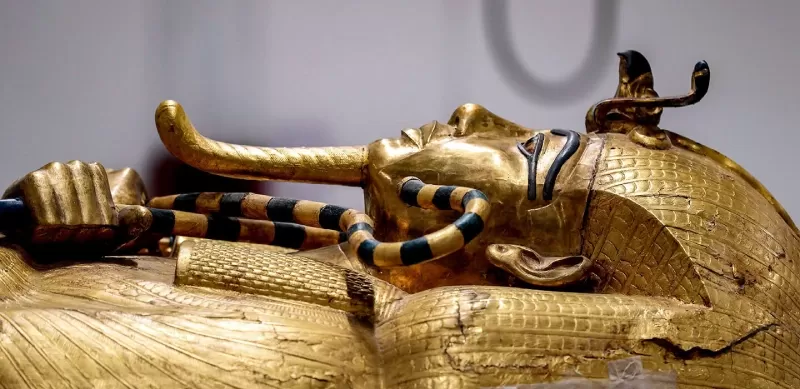
The Curse of King Tutankhamun
The discovery of King Tutankhamun’s tomb in 1922 was considered one of the ultimate archaeological latter-day achievements but also served as the seed behind one of ancient Egypt’s most mysterious legends: the Curse of the Pharaohs.
Immediately after the tomb was opened, deaths began happening around members of Howard Carter’s team, suspicious and unexplained, and rumors began about a killing curse that would ensure any who disturbed the late king’s eternal rest. Lord Carnarvon, who bankrolled the expedition, had died soon after entering the tomb, to the great dismay and encouragement of the myth. This was followed by stories of sudden illnesses, accidents, and strange doings, capturing the world's imagination.
Modern scientists tend to discount the curse, probably as a superstition or as coincidental, citing natural causes like mold or bacteria from antiquity, but the myth carries on. It is one of the most enchanting and debated aspects of Tutankhamun’s story, thus stirring international intrigue and becoming a major boon to exhibitions and museums showcasing his treasures.
The curse's story continues to shake the hearts of curious men interested in Egypt's ancient splendor, whether they are visiting ancient tombs or tracing history through documentaries and museum tours.
Conclusion
Though King Tutankhamun's rule was brief, the rediscovered legacy has immeasurably influenced mankind. His life, mysterious death, and the legends that emerged make him a lasting symbol of ancient Egypt.
From the magnificent golden mask to the sinister history of his tomb, this boy king will remain one of the most famous figures in Egyptian history. His story enhances Egypt tours, Nile Cruises, and Cairo day trips, giving travelers more than just sites to see, something to think about, too.
For anyone interested in the mysteries of the past, visiting King Tutankhamun's tomb is a must-do, either wandering through the halls of the Egyptian Museum or walking through history in the Valley of the Kings.
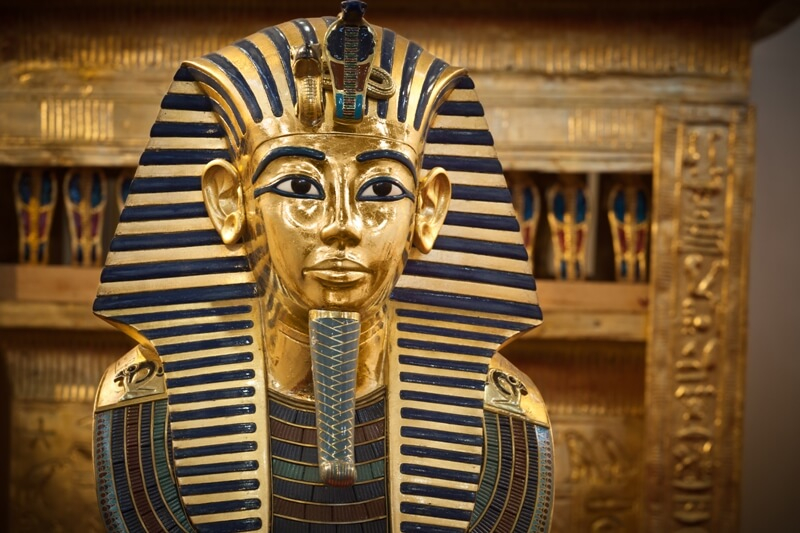

.jpg)
.jpg)
.jpg)
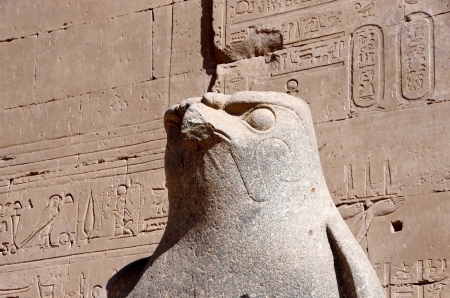

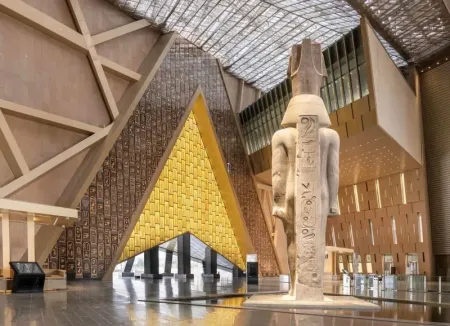
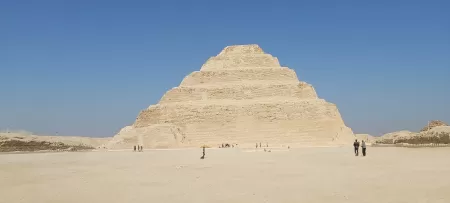
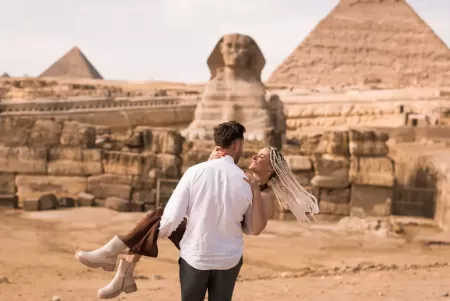
.webp)

